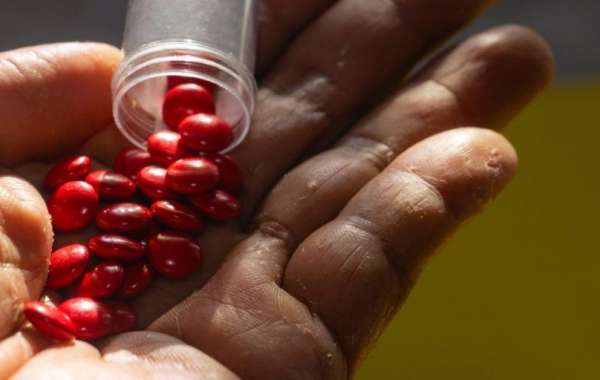You may have seen videos of teens taking fistfuls of red, round candy-looking pills called Triple C on social media. These over-the-counter cough and cold medications containing dextromethorphan (DXM) are being abused by young people.
Although some states have banned sales of these medicines to minors, teenagers still find it easy to buy and steal the medication. When abused, the drug produces hallucinations similar to those of drugs like ketamine and PCP.
Coricidin HBP Cough & Cold
Over-the-counter medicines like Coricidin HBP Cough & Cold contain a powerful cough suppressant known as dextromethorphan or DXM. In high doses, DXM can induce hallucinations and dissociation. It is also extremely addictive and dangerous when abused in large doses.
Parents should be aware that this medication is widely abused by teens. In some states, pharmacies have started to regulate the sale of these medications by requiring identification and limiting purchases.
However, many people who abuse this medication do not purchase it from a pharmacy or other source that is legally regulated. They buy the drug from a street dealer or online. It is often abused by swallowing high doses of it in pill form or by snorting or injecting powdered forms of the drug that can be purchased online.
This medication should not be used by people with high blood pressure or a history of heart disease, or with other drugs that may cause drowsiness or slow breathing. It can also increase your risk of seizures.
Dextromethorphan
Dextromethorphan, also known as DXM, is the drug found in over-the-counter cough medicines. It is safe when taken in recommended doses but can cause a false sense of euphoria and drowsiness when abused. This can cause teenagers to engage in dangerous behavior that can lead to overdose, addiction and liver damage.
DXM works by blocking the NMDA glutamate receptor and produces effects similar to those of dissociative anesthetics like ketamine. High doses of the drug can cause hallucinations and psychosis. DXM also interacts with a number of medications, especially MAO inhibitors such as isocarboxazid (Marplan), phenelzine (Nardil), selegiline (Eldepryl) and tranylcypromine (Parnate).
Parents should be aware of any changes in their teenager’s behavior or mood. Signs of abuse may include empty cough medicine packaging in the trash or missing products from the medicine cabinet. If you suspect your teen is abusing triple C’s, it’s important to seek help from a reputable addiction treatment center. Long-term teen drug abuse can cause permanent brain and liver damage.
Addiction
If you have a teenager in your life, it’s likely that they’ve seen videos on social media of people taking fistfuls of red round candy-looking pills called Triple C. These drugs are also called DXM, and they can be abused to experience hallucinogenic effects.
These effects can include altered time perception, visual hallucinations and even a false sense of well-being similar to drugs like ketamine or phencyclidine (PCP). Abuse can lead to severe withdrawal symptoms as soon as use is stopped.
In addition, Triple C contains large doses of acetaminophen, which can cause liver damage when taken at high levels. Long-term abuse can contribute to liver damage, kidney stones and permanent brain damage.
If your teen is abusing Triple C or other medications containing DXM, look for signs such as missing medicine in their cabinet, empty medicine wrappers, declining grades and changed behavior. They may have a medical addiction to DXM and require professional drug treatment.
Overdose
Triple Cs contain dextromethorphan and acetaminophen, which are safe when taken as directed. However, teens have found ways to abuse these medications in high doses that produce hallucinations. This can be dangerous or even fatal for young people who do so.
Teens who abuse Triple C often steal them from their parents’ medicine cabinets or buy them at drug stores. They may also get them from friends and from websites that sell them in powdered form for resale. They may also steal them from family members’ medicine cabinets or purchase them at illegal drug markets.
Overdoses of Triple C can be very serious and should never be ignored. Signs of abuse include empty boxes of cough medicine in the trash, dramatic changes in your teen’s behavior and attitude, missing school, and declining grades. Professional treatment is available for teens who abuse Triple C. It uses evidence-based techniques such as cognitive behavioral therapy to change flawed thoughts and behaviors that cause the drugs to be abused.








